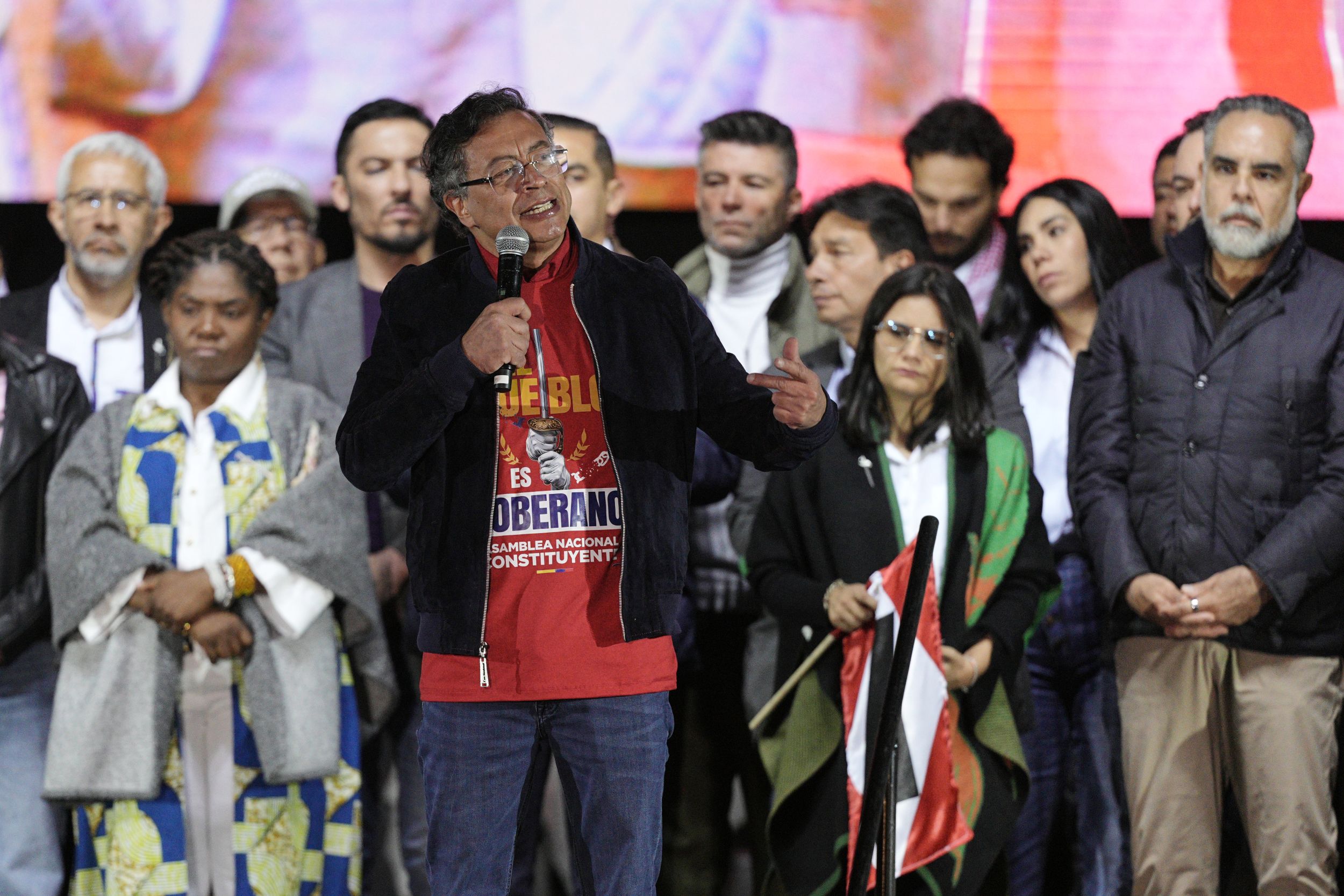
WASHINGTON/CARACAS – The Trump administration on Friday imposed sanctions on Colombian President Gustavo Petro amid deteriorating bilateral relations, accusing Petro of allowing drug cartels to "flourish", according to the US Department of the Treasury.
"President Petro has allowed drug cartels to flourish and refused to stop this activity," US Treasury Secretary Scott Bessent said in a statement.
Petro's wife Veronica Alcocer, his eldest son Nicolas Petro, as well as Colombia's Minister of the Interior Armando Benedetti, were accused of having provided or attempted to provide support, goods or services to Petro.
As a result of the sanctions, all property and interests in property of these designated or blocked persons that are in the United States or in the possession or control of US persons are blocked and must be reported to the US Treasury's Office of Foreign Assets Control (OFAC), the statement said.
"Gustavo Petro is being designated today pursuant to E.O. (executive order) 14059 for having engaged in, or attempted to engage in, activities or transactions that have materially contributed to, or pose a significant risk of materially contributing to, the international proliferation of illicit drugs or their means of production," the statement reads.
Petro confirmed on X that he and his family were placed on the OFAC list, adding that US attorney Daniel Kovalik would represent him.
"Fighting drug trafficking effectively for decades brings me this measure from the government of the society that we help so much to stop cocaine consumption. It's quite a paradox, but not a step back and never on our knees," Petro said in a post.
Benedetti denounced the US move on X as retaliation for defending Colombia's dignity and standing by Petro amid accusations by President Donald Trump, who announced Sunday that Washington would immediately cut aid to Colombia and unveil a new tariff rate.
In response to the US sanctions, the Colombian Foreign Ministry said that the accusation is "an act of the utmost seriousness that goes against the dignity of the President", slamming Washington for trying to illegally intervene in Colombian territory and thus violating the norms of international law and diplomacy.
The US military carried out two strikes on alleged drug trafficking vessels in the eastern Pacific in the past week. US media reported that the two strikes occurred near Colombia's Pacific coast. The Pentagon has sunk 10 alleged drug boats since September, eight in international waters in the Caribbean.
Petro has accused the US of using its anti-drug policy as a pretext to justify the use of force in the Caribbean region to take control of oil reserves.
In September, his US visa was revoked after he joined a pro-Palestinian demonstration and urged US soldiers to disobey Trump's orders when attending the 80th session of the UN General Assembly in New York.
Venezuela condemns US sanctions
Slamming the US sanctions on President Petro and others close to him, the Venezuelan Foreign Ministry termed the measures illegal and "neocolonial".
In a statement, the ministry said the unilateral coercive actions violated international law and the principles enshrined in the United Nations Charter.
"These coercive measures constitute acts of political aggression and pressure that are prohibited by the multilateral system," the statement reads, noting they have been condemned by the UN General Assembly, the Human Rights Council and various special rapporteurs.
The Venezuelan government accused Washington of attempting to criminalize Petro and destabilize Colombia as part of a broader strategy to undermine the sovereignty of independent Latin American and Caribbean nations.
Caracas demanded an immediate end to the coercive measures and called on Latin American and Caribbean governments and peoples to unite in defense of regional sovereignty and independence.


